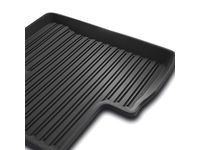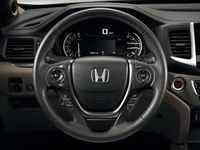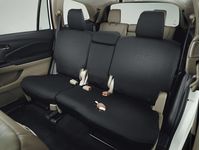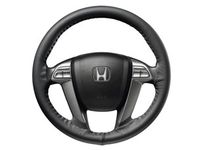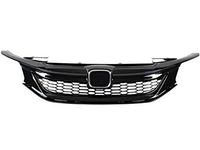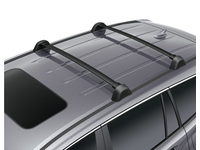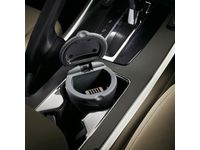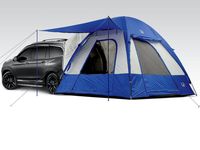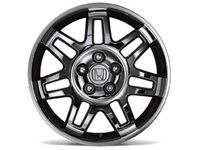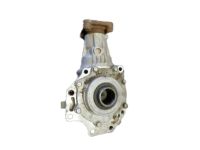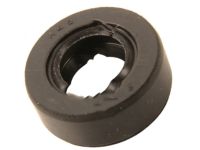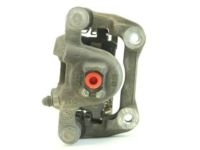- Hello
- Login or Register
- Quick Links
- Live Chat
- Track Order
- Parts Availability
- RMA
- Help Center
- Contact Us
- Shop for
- Honda Parts
- Honda Accessories

Why choose HondaPartsNow
- Unbeatable Prices
HondaPartsNow.com is your prime online source for discounted prices. We offer high-quality options for your vehicle that can't be found anywhere else. HondaPartsNow.com offers genuine parts at discounted prices, allowing you to keep your vehicle running at its peak without straining your budget.
- Dedicated Service
HondaPartsNow.com ranks second to none in devoted customer service. We strive to exceed the customer's expectations and build relationships with the customers. We are always ready to assist you with any inquiry or detail about your vehicle's parts and accessories.
- Rapid Delivery
HondaPartsNow.com is devoted to combining genuine Honda Pilot parts and accessories with fast and affordable shipping. Most items listed in our catalog are in stock and are shipped out promptly after the order has been successfully processed. This guarantees you receive the parts your vehicle needs without needing to leave your home in just a matter of days.
Popular Genuine Honda Pilot Parts
- Electrical / Exhaust / Heater / Fuel Parts View More >
- Chassis Parts View More >
- Engine Parts View More >
- Interior / Bumper Parts View More >
- Body / Air Conditioning Parts View More >
- Accessories View More >
Shop Genuine Honda Pilot Parts with HondaPartsNow.com
The Honda Pilot, Honda's largest SUV offering three rows of seating, has evolved across multiple generations since its inception in 2002. Initially launched as a successor to the CR-V and Honda Passport, the Pilot surpassed the Crosstour in size to become Honda's largest SUV, sold in North America, the Middle East, Russia, Ukraine, South Korea, Latin America, and the Philippines. First-generation Pilot, designed by Riki Hsu, featured three rows of stadium-style seating, catering to eight passengers, although the third row was best suited for children or short trips due to limited legroom. Options included a power sunroof, DVD entertainment system, and a navigation system. The second-generation Pilot, introduced in 2008, boasted a 250-hp J35Z4 V6 engine and was available in five versions. Honda further refined this generation with changes like the inclusion of voice-activated navigation system in the EX-L trim and a standard rear-seat entertainment system in the Touring version. The 2012 model introduced a sleeker design, new alloy wheels, LED exterior brake, taillights, and daytime running lights. The Pilot was updated again in 2019, with enhancements to its nine-speed transmission and the start-stop system. The Pilot's commitment to versatile seating, innovative features, and powerful performance has contributed to its popularity in the midsize SUV segment.
The Honda Pilot, a crossover SUV often driven under harsh conditions, can present certain issues. Excessive oil consumption typically becomes apparent around 76,000 miles, with the rate increasing significantly. Side effects include engine misfiring, performance loss, and metallic noises, often accompanied by the illumination of the Check Engine Light. In such cases, it's advisable to check the air filter, oil filter, oxygen sensor, and timing belt tensioner. Transmission failure and fluid leakage are also common issues, leading to difficulty in shifting gears, grinding noises, and even acceleration problems, which can be potentially hazardous. Such problems may stem from the transfer case seal, valve body, or clutch disc. The brake pad set and brake disc are other critical components that wear out over time. Symptoms of failure include noisy brakes, poor response, and score marks on the rotors. Moreover, the door lock actuator, which safeguards property; the wiper blade, which ensures clear visibility; and the fog light, which provides illumination in foggy weather, all need regular maintenance to ensure the safety and longevity of the Honda Pilot.
Originating directly from Honda, OEM parts excel in quality, longevity, and fitment. They undergo severe quality testing, ensuring its safety, durability, and performance that matches your original parts. If you're searching for OEM Honda Pilot parts, including Transmission - Automatic, look no further. Our website boasts an extensive inventory of genuine Honda Pilot parts, all available at the most competitive prices online. Every part we offer comes with a manufacturer's warranty. In addition, we provide a straightforward return policy and rapid delivery services, making your shopping experience a breeze.
Honda Pilot Parts Questions & Answers
- Q: How to remove and install a transfer case in a Honda Pilot?A: Raise the front of the vehicle and securely support it on jackstands. Mark the relationship of the driveshaft to the transfer case flange, then unbolt the driveshaft from the flange. Suspend the driveshaft with a piece of wire (do not let it hang by the center support bearing). Drain the transaxle lubricant. Remove the subframe stiffener by removing the fasteners securing it. Remove the front exhaust pipe. Remove the bolts securing the transfer case to the transaxle, then carefully remove the transfer case from the transaxle. Installation is the reverse of removal, noting the following points: Install a new O-ring to the case. Tighten the mounting bolts. Refill the transaxle with the proper type and amount of lubricant.
- Q: How to replace the oil seal in a Honda Pilot's differential housing?A: Raise the rear of the vehicle and securely support it on jackstands. Place the transaxle in Neutral with the parking brake off. Block the front wheels to prevent the vehicle from rolling. Remove the driveaxle(s). Pry the seal from the differential housing. Using a seal installer or a large deep socket as a drift, install the new oil seal. Drive it into the bore squarely and make sure it is completely seated. Lubricate the lip of the new seal with multi-purpose grease, then install the driveaxle. Be careful not to damage the lip of the new seal. Check the differential lubricant level and add some if necessary to bring it to the appropriate level.
- Q: How to remove and replace calipers on Honda Pilot?A: Always replace the calipers in pairs - never replace just one of them. To remove the calipers, first loosen the wheel lug nuts, raise the vehicle, and securely support it on jackstands. Remove the wheels. Next, remove the brake hose banjo bolt and disconnect the hose from the caliper. Plug the hose to keep contaminants out of the brake system and prevent losing any more brake fluid than necessary. If you're just removing the caliper for access to other components, do not detach the hose. Then, remove the caliper mounting bolts and the caliper itself. If necessary, remove the caliper bracket from the steering knuckle or rear knuckle. To install the caliper, reverse the removal procedure. Tighten the caliper mounting bolts and bracket bolts. Install new sealing washers on either side of the brake hose banjo fitting, then tighten the banjo bolt. Bleed the brake system. Finally, install the wheels and lug nuts. Lower the vehicle and tighten the lug nuts.















































